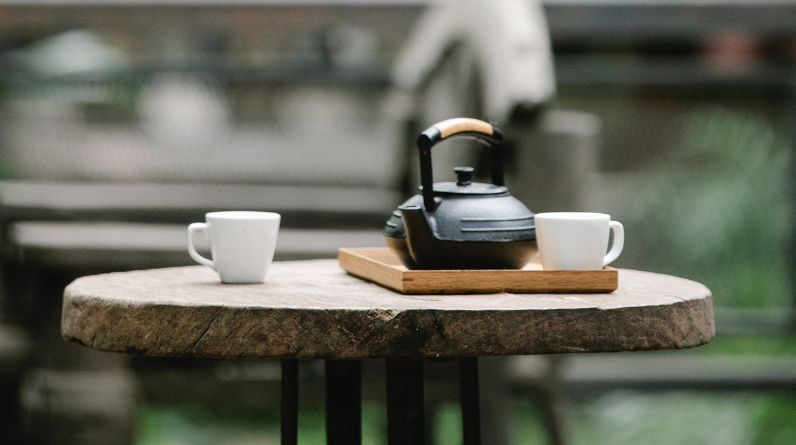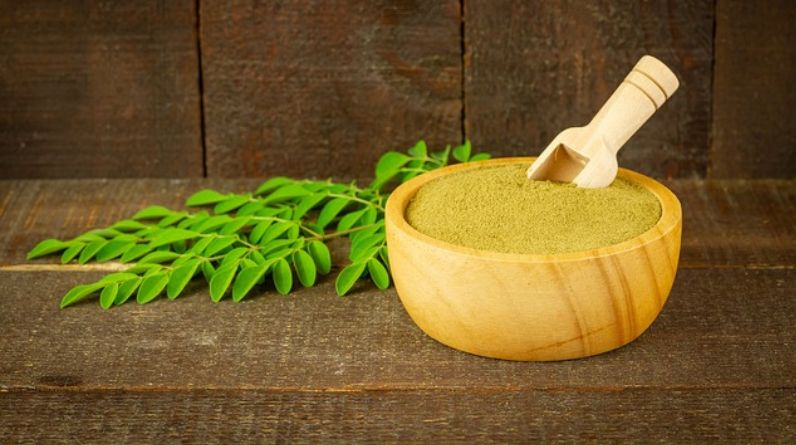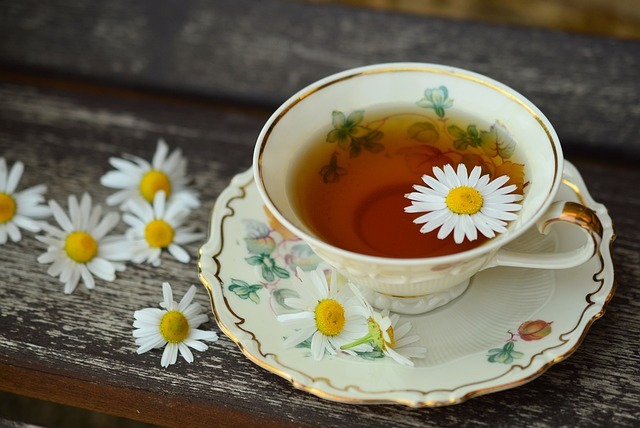
1. Introduction
Stress has become an unavoidable part of our lives in today’s fast-paced world. From professional demands to personal issues, stress can have a negative impact on our physical and emotional health. However, nature has provided us with a treasure trove of herbs that offer natural and effective ways to combat stress and promote relaxation. In this article, we will explore the impact of chronic stress on our health, delve into scientific evidence supporting the use of herbs for stress relief, and discover the top herbs renowned for their calming properties. Let’s embark on a journey to find harmony and inner peace through the power of herbal remedies.
2. The Impact of Chronic Stress on Physical and Mental Health
Chronic stress, if left unaddressed, can wreak havoc on our bodies and minds. When exposed to ongoing stressors, our bodies release stress hormones like cortisol, which can lead to a range of physical and mental health issues. From weakened immune systems and cardiovascular problems to anxiety and depression, chronic stress can significantly compromise our overall well-being. It is crucial to identify the signs of stress early on and adopt healthy coping strategies, such as incorporating stress-relieving herbs into our daily routines.
3. Scientific Evidence of Herbs for Stress and Anxiety
The use of herbs for stress relief is not merely a traditional belief but also backed by scientific research. Numerous studies have explored the efficacy of herbs in reducing stress and anxiety levels. Lavender, Chamomile, Ashwagandha, Valerian Root, Passionflower, and Rhodiola Rosea are among the herbs that have shown promising results in managing stress-related symptoms. These studies shed light on the mechanisms through which these herbs influence the brain’s neurotransmitters and stress-regulating pathways.
4. Top Herbs for Stress Relief and Relaxation
4.1 Lavender
Lavender is renowned for its enchanting aroma and versatile applications in aromatherapy. Its calming effects make it a popular choice for reducing anxiety and promoting relaxation. Lavender essential oil, teas, and sachets are commonly used for their therapeutic benefits, including improved sleep and stress reduction.
4.2 Chamomile
Chamomile, often consumed as a soothing tea, possesses powerful calming properties. It has been cherished for centuries for its mild sedative effects and is known to ease tension and promote better sleep. Chamomile-infused creams and oils can also be applied topically for relaxation.
4.3 Ashwagandha
Ashwagandha, an adaptogenic herb, helps the body adapt to stress and maintain balance. It regulates cortisol levels and supports the body’s ability to cope with stress, thereby reducing anxiety and stress-related symptoms.
4.4 Valerian Root
Valerian Root is a natural sedative used for relaxation and as a sleep aid. Its traditional use in promoting restful sleep and reducing anxiety makes it an essential herb for stress relief.
4.5 Passionflower
Passionflower has a long history of use as a remedy for calming nerves and promoting restful sleep. The flavonoids and alkaloids in Passionflower contribute to its anxiolytic effects.
4.6 Rhodiola Rosea
Rhodiola Rosea, an adaptogenic herb, aids in balancing stress hormones and enhancing resilience. Studies suggest its potential to reduce cortisol levels, supporting stress management.
5. Ayurvedic Herbs and Traditional Chinese Medicine for Relaxation
Ayurveda and Traditional Chinese Medicine (TCM) offer valuable insights into using herbs for stress relief. Ayurvedic herbs like Brahmi and Ashwagandha, along with TCM herbs like Ginseng and Schisandra, have been time-honored remedies for promoting relaxation and tranquility. Understanding the ancient wisdom behind these herbs allows us to embrace their holistic healing properties.
6. Herbal Supplements: Safety and Efficacy
Herbal supplements can be powerful allies in stress management. However, it is essential to ensure their safety and efficacy. Choosing reputable brands and understanding proper dosage is vital to reap the benefits of these supplements fully. Additionally, consulting healthcare professionals helps avoid any potential interactions with existing medications.
7. Recipes for Different Herbal Combinations and Their Benefits
Combining various herbs can create powerful blends customized for specific stress-relief needs. Whether it’s a blend for relaxation, mental clarity, or better sleep, understanding the properties of different herbs allows us to create personalized herbal solutions.
8. Herbal Infused Oils and Bath Products: A Soothing Ritual
Herbal infused oils and bath products offer a luxurious and calming experience. Incorporating them into our self-care routines can enhance relaxation and reduce stress. Whether it’s a soothing massage oil or a calming bath soak, these herbal rituals can provide much-needed relief from the daily hustle and bustle.
9. Herbs That Promote Restful Sleep and Combat Insomnia
Quality sleep is essential for our overall well-being. Certain herbs, such as Valerian, Lavender, and Chamomile, have been used to promote restful sleep and combat insomnia. By incorporating these herbs into a bedtime ritual, we can improve sleep quality and wake up refreshed and rejuvenated.
10. Conclusion
Incorporating stress-relieving herbs into our daily lives is a holistic approach to promoting relaxation and well-being. From ancient herbal wisdom to modern scientific evidence, the effectiveness of herbs for stress relief is well-established. Whether it’s a cup of calming herbal tea or a calming bath infused with aromatic oils, these natural remedies offer a path to inner peace and harmony amidst life’s challenges.
Frequently Asked Questions
1. Can herbs for stress relief be used in conjunction with medications?
Herbs for stress relief can often be used alongside medications, but caution is essential. Some herbs may interact with certain medications, potentially reducing their effectiveness or causing adverse effects. It’s crucial to consult with a healthcare professional before combining herbs with any prescription medications. They can assess your specific health situation and medication regimen to ensure there are no potential interactions.
2. Are there any potential side effects of using stress-relieving herbs?
While stress-relieving herbs are generally safe when used as directed, some individuals may experience mild side effects. Common side effects can include headaches, digestive issues, dizziness, or allergic reactions. These side effects are usually temporary and subside when the herb is discontinued. It’s essential to start with a lower dosage and observe how your body responds to the herb. If you suffer any negative side effects, stop using it and consult a doctor.
3. How long does it take for herbs to show their stress-reducing effects?
The time it takes for herbs to show stress-reducing effects can vary from person to person. Some individuals may experience immediate relaxation and a sense of calmness after consuming stress-relieving herbs, while others may need a few days or weeks of consistent use before noticing significant changes. It’s important to be patient and give the herbs sufficient time to work. Consistent use and following the recommended dosage are key to experiencing the full benefits.
4. Are these herbs safe for pregnant or breastfeeding individuals?
Not all stress-relieving herbs are safe for pregnant or breastfeeding individuals. Some herbs may have contraindications during pregnancy or lactation and may pose a risk to the developing fetus or nursing baby. It’s crucial for pregnant or breastfeeding individuals to consult with a healthcare professional before using any herbal remedies to ensure safety for both mother and baby. Pregnant and breastfeeding individuals should avoid self-medicating with herbs and seek professional guidance.
5. Can children benefit from stress-relieving herbs?
Yes, certain stress-relieving herbs can benefit children, but extra caution is necessary. Herbal remedies for children should be age-appropriate and administered in the correct dosages. Not all herbs are suitable for children, and some may have specific safety considerations. It’s important for parents to consult with a pediatrician or qualified herbalist before giving herbal remedies to children to ensure appropriate and safe use.
6. How can I create a personalized herbal blend for stress relief?
Creating a personalized herbal blend for stress relief involves understanding the properties and effects of different herbs and how they interact with each other. It’s not recommended to self-prescribe herbal blends, especially if you have underlying health conditions or are taking medications. Working with a qualified herbalist or holistic healthcare practitioner is the best approach to tailor a blend to suit your specific needs and health situation. They will consider your individual health history, stress levels, and other factors to create a personalized and effective herbal blend.
7. What are some easy ways to incorporate stress-relieving herbs into my daily routine?
There are several easy and enjoyable ways to incorporate stress-relieving herbs into your daily routine:
Herbal Teas: Brew and enjoy calming herbal teas like Chamomile, Lavender, or Lemon Balm. Sipping on a warm cup of herbal tea can be soothing and relaxing.
Herbal Supplements: Consider taking herbal supplements in capsule or tincture form. These are convenient options to incorporate herbs into your daily routine.
Aromatherapy: Use essential oils derived from stress-relieving herbs in aromatherapy diffusers or through topical application (diluted with a carrier oil). Inhaling the aroma can have calming effects.
Herbal Baths: Add dried herbs like Lavender or Rosemary to your bathwater for a soothing and aromatic soak.
Herbal Cooking: Incorporate stress-relieving herbs into your cooking. Add herbs like Basil, Thyme, or Sage to your meals to enhance relaxation.
8. Can herbal supplements interact with other dietary supplements or medications?
Yes, herbal supplements can interact with other dietary supplements and medications. Some herbs may enhance or diminish the effects of certain medications, leading to potential complications or reduced efficacy. It’s essential to inform your healthcare provider about all the supplements and medications you are taking, including over-the-counter products. This way, they can help you determine the appropriate dosages and combinations, reducing the risk of interactions.
9. Are there any specific herbs that are more effective for certain types of stress?
Yes, certain herbs may be more effective for specific types of stress due to their unique properties. For example:
Adaptogenic Herbs: Adaptogens like Ashwagandha and Rhodiola are known to help the body adapt to stress and promote resilience.
Sedative Herbs: Herbs like Valerian and Passionflower have calming and sedative effects, making them beneficial for promoting relaxation and better sleep.
Nervine Herbs: Nervine herbs like Lemon Balm and Skullcap are specifically soothing to the nervous system, making them useful for anxiety and nervous tension.
Working with a healthcare professional or herbations such as GMP (Good Manufacturing Practice) and organic certifications.
Read Customer Reviews: Read reviews and feedback from other customers to gauge the product’s effectiveness and quality.
Look for items that have been tested for purity and efficacy by a third party.
Consult a Healthcare Professional: If you’re unsure about a product’s authenticity or quality, consult with a healthcare professional or herbalist for recommendations.alist can help identify the best herbs for your specific type of stress.
10. How can I ensure the quality and authenticity of herbal products I purchase?
Ensuring the quality and authenticity of herbal products is essential to obtain safe and effective results. Here are some tips:
Choose Reputable Brands: Purchase herbal products from trusted and reputable brands that follow good manufacturing practices and quality standards.
Look for Certifications: Check for certifications such as GMP (Good Manufacturing Practice) and organic certifications.
Read Customer Reviews: Read reviews and feedback from other customers to gauge the product’s effectiveness and quality.
Third-Party Testing: Look for items that have been third-party tested for purity and potency.
Consult a Healthcare Professional: If you’re unsure about a product’s authenticity or quality, consult with a healthcare professional or herbalist for recommendations.





